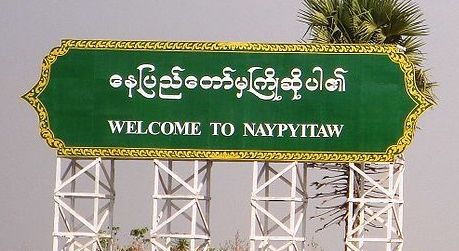The Transparency Deficit: The Culture of Secret Talks and Political Deal-Making

13 March 2012: (Editorial) Secret talks and deal-making between the political elites are no new phenomenon in Burma. In fact, transparency – no matter how much anybody on either ends of the political spectrum claims to want it – has been lacking in the political discourse since before the founding of the Union of Burma in 1947.
General Aung San, the leader of Burma’s independence, initially went behind the backs of the non-Burman ethnic nationalities, which were then separately administered by the British, and tried to negotiate a deal with the British to get independence on their behalf. But only when the British told him he didn’t have the mandate to speak on behalf of the non-Burman nationalities did he come back from London and negotiate the historic Panglong Agreement with the Chin, Kachin and Shan.
This paved the way for the founding of the Union of Burma and the country’s independence on 4 January 1948.
General Aung San learned from his mistake and quickly rectified it by consulting the ethnic leaders at the Panglong Conference. This is why he remains respected and revered among the people of Burma more than sixty years after his death.
In late 2001, brokered by Razali Ismail, then UN Special Envoy to Burma, pro-democracy leader Aung San Suu Kyi and Intelligence Chief Gen. Khin Nyunt started “Secret Talks.” Portrayed as a confidence-building measure, the “Secret Talks” continued on for months, but the substance of the talks was never made public. Key stakeholders in Burma – the ethnic nationalities, who comprise about 40 percent of the population and occupy about 60 percent of the country’s landmass – were kept in the dark and left to wonder about the entire process. The ethnic nationalities were simply expected to put complete faith in Suu Kyi and her National League for Democracy (NLD), and so they did, hoping that it would eventually lead to a political dialogue that would also involve them as key partners.
One decade later on 19 August 2011, Aung San Suu Kyi held a one-hour closed-door meeting with Burma’s new President Thein Sein, which resulted in the NLD making a policy U-turn. The 1990 election-winning party accepted entry into the new political structure under the 2008 constitution – a structure that they had vehemently rejected and actively campaigned to boycott prior to the 2010 elections. But despite the NLD’s rhetoric of sympathy to the ethnic cause, ethnic leaders are still left in the dark about the substance of talks between Suu Kyi and President Thein Sein.
Those ethnic parties from the 1990 elections who faithfully aligned themselves with the NLD during the most difficult years are now left scrambling to avoid irrelevance, while the NLD is going full steam ahead for the April by-elections. Now that the NLD is looking to enter Parliament, Aung San Suu Kyi is trying to reach out to the ethnic parties from the 2010 elections for the very first time since she was released from house arrest more than a year ago. But neither the 1990 nor 2010 ethnic parties seem to have been informed of the substance of her “Secret talks” with President Thein Sein.
It should be no surprise then, that some ethnic people see the talks between Suu Kyi and Thein Sein as “Burman-to-Burman dialogue,” although both parties have acknowledged the need to resolve the ethnic issue.
Yes, there have been attempts to reach out to the ethnic armed groups for cease-fire agreements. But the continuing lack of transparency surrounding the talks between Suu Kyi and Thein Sein is worrying.
When Aung San Suu Kyi came out of her ‘historic’ meeting with President Thein Sein, all she said was that she trusted the President, without offering any further insights into the substance of their bilateral discussion. This begs the questions: Are the ethnic nationalities expected to put blind trust in Thein Sein simply because Aung San Suu Kyi trusts him? Isn’t it expecting too much of the ethnic nationalities to put complete faith in a political process they have no idea about?
The culture of secret talks and political deal-making should stop. Burma needs a transparent and inclusive process if there is to be a genuine national reconciliation and long-lasting political settlement. While there may be a need for certain aspects of the negotiations to be kept secret between the two parties – at least for a given period of time in the interest of moving forward the reconciliation process – there should also be a concrete timeframe in place for full disclosure of the substance of the talks, and inviting the other key stakeholders to the same table. Otherwise, keeping the ethnic nationalities in the dark will only serve to diminish public confidence in the current dialogue process.





